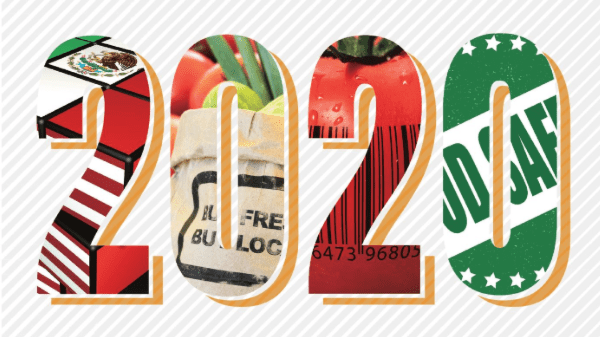The issue of sustainability has been at the forefront of the industry in 2019 and will gain further significance in 2020.
Kris Park, from the Food Industry Management Program at Cornell University in Ithaca, NY, notes broad issues of the environment, food waste, and how to feed the world have long been a matter of study by academics and environmentalists. Yet when it comes to targeted, practical solutions, there are ramifications.
“Consumers are telling us they’re looking to avoid plastic,” notes Steve Lutz, senior vice president of insights and innovation at Category Partners, LLC, based in Idaho Falls, ID. “There’s also been a resurgence around branding, and that’s facilitated by packaging.”
Steve Grinstead, CEO of the FreshEdge companies, is on the same page. “Environmentally sound packaging is a major focus right now—younger generations vote with their pocketbooks. This is important to them and should be to all of us.”
Park looks at it from another angle. “We may now be at a tipping point on banning plastic shopping bags at retail, but there’s been no research on how this will change shopping habits,” she points out. “If you have no plastic containers and no shopping bags, where will your produce sit? And new packaging will affect the quality of produce, but it’s not known yet whether that’s good or bad.”
“I don’t believe consumers will shift toward bulk purchases, as I believe their desire for convenience will outweigh sustainability concerns,” says Tom Thompson, partner at Golden Sun Marketing in Mound, MN. “However, I think we will see consumers push for single-use packaging alternatives.”
Alternative solutions are more difficult in some categories than others, like berries.
“Any berry except blueberries is packed in the field,” explains Jill Overdorf, director of business development for foodservice at Naturipe Farms BB #:116078 in Salinas, CA. “Blueberries are separated and sorted for color and density at the packing house, so they have the luxury of heat seal, but with field-packed fruit, it’s a challenge to do heat seal or moisture barriers.”
Concerns about the environment, of course, are not limited to consumer-level packaging. “While single-use plastic packaging is certainly top of mind, an equally important topic is how the flow of the supply chain can mitigate food waste,” Thompson says.
“I’m very interested in watching how it’s tackled from multiple angles—from sachets to coatings to improved packaging and simply a better-managed supply chain. We need to approach it from all fronts.”
Ongweoweh Pooling, LLC, headquartered in Ithaca, New York, is one of the businesses fighting for sustainability from another angle. James O’Neil, executive director, says the company leases reusable pallets, crates, and bins so customers can reduce costs, protect product, support food safety initiatives, and reduce waste with fewer items being sent to landfills.
The company has also added HACCP- and SQF-certified staff to better understand the unique challenges of its food customers and to develop new packaging and shipping solutions.
This is a multi-part series adapted from the January 2020 issue of Produce Blueprints, featuring a variety of experts predicting what will be top of mind in 2020.



